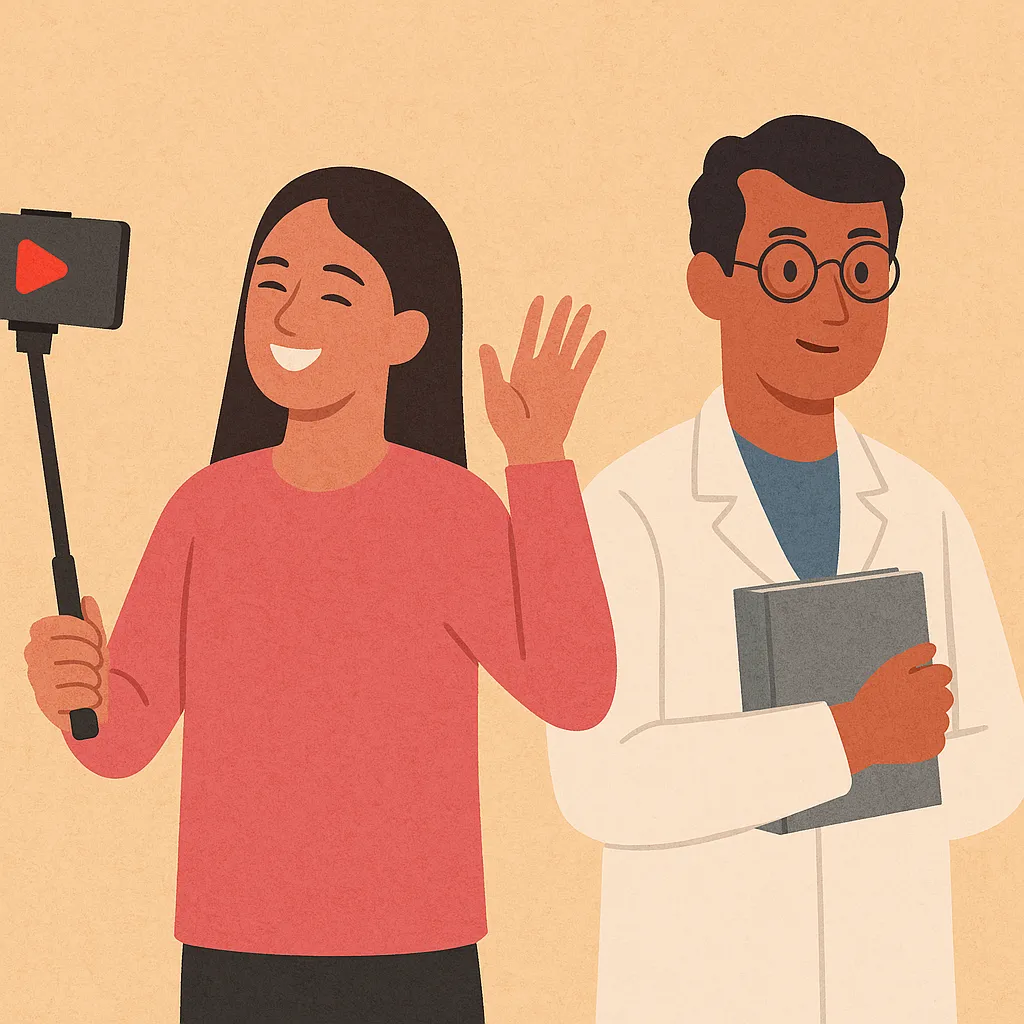In a world ruled by reels and trends, the path to fame has shifted dramatically. Gone are the days when talent, skill, or education guaranteed respect and recognition. Today, a quirky one-liner or a 15-second video can make someone a household name overnight.
But in celebrating virality, are we quietly sidelining real contributions? Is social media shaping a generation that values clout over credibility?
The Rise of India’s Creator Economy
India’s content creation space is no longer a side hustle—it’s a booming industry. As of 2023, India had over 80 million content creators, spanning from dancers and gamers to educators and meme-makers.
The influencer marketing sector is projected to cross ₹2,800 crore by 2026, showing how virality is no longer a byproduct of fame—it is fame. With this comes brand deals, event invitations, speaking gigs, and even political clout.
“Real Contributors vs Viral Stars” comparison — visibility, income, social recognition.
Viral Content vs Real Contribution
Let’s compare what typically goes viral:
- High Reach: Dance trends, mimicry, absurd challenges, prank videos
- Low Reach: Educational explainers, social awareness, scientific insights
According to Meta (2022), a viral reel gets 10x more reach than most educational or awareness-based content.

In fact, a Morning Consult survey (2021) found that 70% of Gen Z (aged 13–21) would rather be a YouTuber than a doctor or engineer. That says a lot about where young aspirations are heading.
Visibility Divide (Narrative Visualization)
Viral influencers enjoy high visibility, strong earnings, and are frequently seen at major events.
Teachers, scientists, and changemakers? They often work in the shadows — respected, but rarely recognized.
Algorithm Culture: The Real Puppet Master
Why does a meaningless prank video trend while a documentary on mental health flops?
The answer lies in algorithms — digital gatekeepers of what we see, like, and share. Platforms like Instagram, TikTok, and YouTube prioritize content that triggers fast engagement: likes, shares, and comments.
That means:
- Shock value > Substance
- Louder voices > Thoughtful ones
- Clickbait > Credibility
So the more dramatic or absurd your content, the higher your chances of reaching millions.
Unless platform algorithms start rewarding quality, we’ll keep consuming chaos over culture.
Followers Over Degrees: A Cultural Shift
This isn’t just about content — it’s about culture. In today’s world, success is increasingly measured in views, likes, and followers, not degrees, knowledge, or impact.
For many youngsters, education feels “too slow.” A viral moment can change lives overnight, while traditional careers demand patience and perseverance.
Kids now imitate viral lines, prank culture, and outrageously risky stunts hoping to “blow up.” The risk? We may be raising a generation that’s popular—but unprepared.
Why People Will Do Anything to Go Viral
Social media doesn’t just amplify content—it monetizes it. Platforms reward views with money. Brands care more about reach than reasoning. As a result:
- Outrageous behavior becomes content
- Harmful trends gain traction
- Genuine creators get lost in the noise
If social media stopped monetizing viral nonsense, the incentive for attention-seeking behavior would decrease. Perhaps then, quality content would rise again.
What Are We Really Promoting?
We are increasingly celebrating noise over knowledge. It’s time to reflect:
- Are we glorifying fame at the cost of true impact?
- Are we creating an economy that thrives on distraction, not development?
- Are we shaping a future that’s more about being seen than being smart?
Final Thought: Not All That Trends Is Treasure
Virality isn’t inherently bad. It has democratized fame and opened new career doors. But when going viral replaces adding value, we need to pause.
Let’s bring back the spotlight to those who build, educate, innovate, and inspire. Because while platforms can make you famous, only purpose can make you respected.
We Want to Hear From You
💬 Do you think social media should stop monetizing viral nonsense?
✅ Yes, it’s ruining content quality
❌ No, everyone deserves a chance
❓ Not sure / Mixed opinion
[Cast your vote below]
























